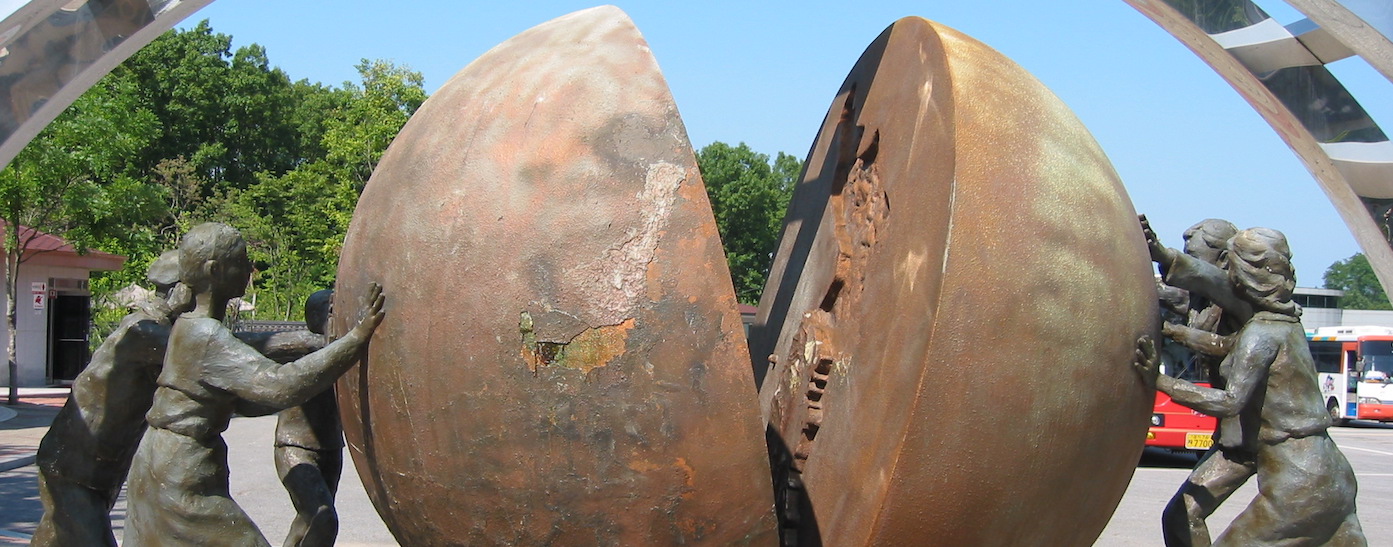
New Vice Minister of Unification
South Korea’s New Vice Minister of Unification
Who is he?
Kim Hyungseok was appointed the new Vice Minister of Unification in June 2016. Vice Minister Kim has nearly 30 years of public service experience in Korean unification affairs. He was previously Secretary to the President for Unification at the Presidential Office for Foreign Affairs and National Security from April 2015 to June 2016, where he filled in the position vacated by Hong Yong-pyo after he was appointed the Minister of Unification in March 2015. He first served in the Blue House as Assistant Secretary to the President for Unification in the Office of President Lee Myung-bak from August 2007 to March 2008. Before working in the Park administration, he was a Senior Expert Member for the Saenuri Party from December 2014 to April 2015.
He served as Senior Representative for Inter-Korean Dialogue at the Office of Inter-Korean Dialogue at the Ministry of Unification from October 2013 to December 2014, where he was responsible for operating and coordinating and setting strategies for inter-Korean dialogue. Before that, he also served more than a year as the spokesperson for the Ministry of Unification (October 2013 – December 2014), responsible for communicating the government’s North Korea policy and unification efforts to the South Korean public. Prior to that, he has served as heads of various departments within the MOU, including: Head of the Intelligence and Analysis Bureau (March – December 2011); Director General for Economic Cooperation Planning, Office of Inter-Korean Economic Cooperation (February 2006 – August 2007); Head of Policy Agenda Management Team, Policy Public Relations Office (April 2005 – February 2006); and Head of General Policy Division, Unification Policy Office (April 2005).
Vice Minister Kim comes into office with a strong conviction that North Korea must give up its nuclear weapons and abide by international norms in order to establish inter-Korean relations where universal validity, common sense and international principles apply.
Vice Minister Kim received a B.A. in English Language and Literature from Seoul National University, a M.D. in Public Administration from the Seoul National University’s Graduate School of Public Administration, and a Ph.D. in North Korean Studies from Kyonggi University. He passed the 32nd National Civil Service Examination in 1989.
Why has he been in the news?
Dr. Kim was appointed the new vice minister of unification on June 8, 2016 as a part of a mini-reshuffle within the Blue House that included a number of other appointments for senior secretaries and vice-ministerial officials. He replaced Hwang Boo-gi, who has served for about 18 months since November 2014, and is retiring from government service.
In his inaugural speech on the same day, Vice Minister Kim reiterated that North Korea’s nuclear weapons program remained the “biggest stumbling block to an improvement in inter-Korean ties and peaceful unification,” and reaffirmed his belief that “if there is inter-Korean dialogue, it should be held in a proper manner and it should deal with core issues.” His words echoed that of his boss, Minister Hong Yong-pyo, who similarly stressed those positions during an address he gave at the 2016 Forum on Korean Unification in May 2016.
What can we expect from him?
Vice Minister Kim brings back to the Ministry of Unification an impressive wealth of experience having worked for most offices within the Ministry and with President Park Geun-hye on her North Korea policy after having served in the Blue House for the past year. His familiarity at a high level with inter-Korean policy stems not only from the Park administration, but also of the Lee and Roh Moo-hyun administrations means that he has experienced the up and downs of inter-Korean relations in the past decade. Vice Minister Kim comes into office with a strong conviction that North Korea must give up its nuclear weapons and abide by international norms in order to establish inter-Korean relations where universal validity, common sense and international principles apply. Therefore, he is well-equipped to help Minister Hong send a clear message to North Korea and to tackle the tough road ahead in the important issue of Korean unification. 

[carousel-horizontal-posts-content-slider-pro id='113']